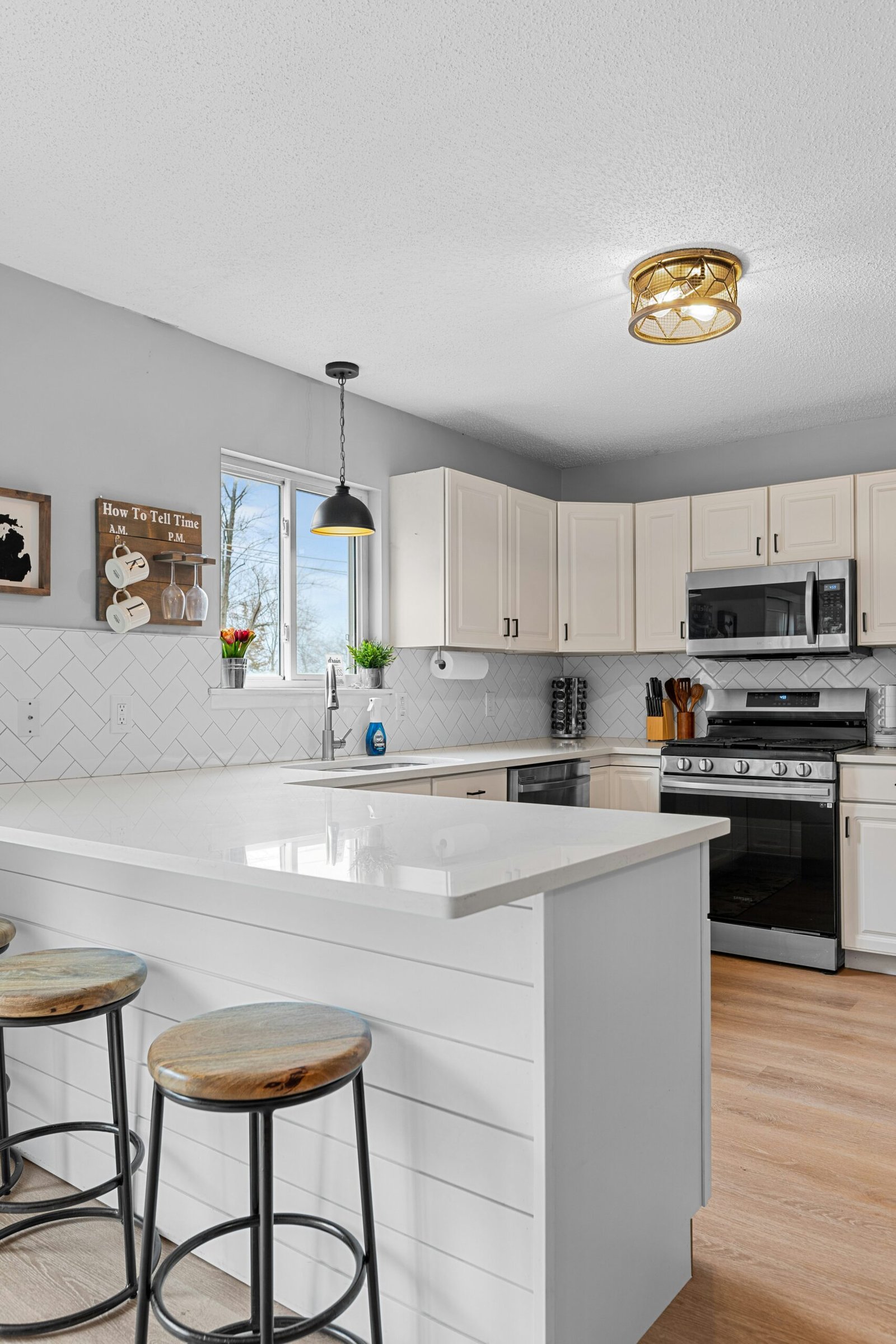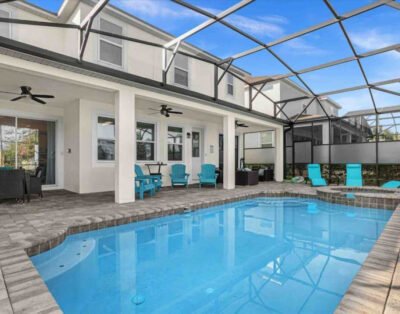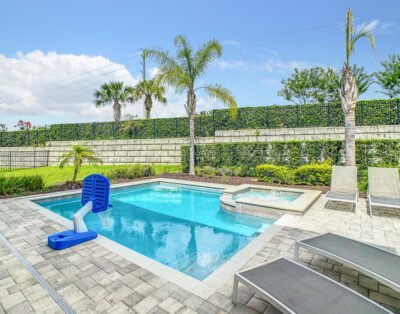Essential Tips for Operating a Successful Short-Term Rental in the UK and Europe
Understanding Local Regulations and Licensing Requirements
Operating a successful short-term rental in the UK and Europe necessitates a thorough understanding of local regulations and licensing requirements. These regulations can vary significantly from one location to another, emphasizing the importance of diligent research prior to listing a property. In many regions, landlords must obtain specific permits or licenses that legally authorize the rental of their property for short durations. Failure to secure these permits can result in hefty fines or even the shutdown of the rental operation.
For instance, in cities like London, hosts must register their property if it is rented out for more than 90 days within a calendar year. Other areas may impose different limits or additional regulations. It is essential to visit local government websites or consult with local authorities to gain a deeper understanding of the precise requirements, including any applicable taxes that may need to be paid.
Furthermore, zoning laws must be considered, as certain neighborhoods may have restrictions against short-term rentals. Hosts should investigate whether their property is situated in a zone that permits such rental activities to ensure compliance with local policies. Additionally, some regions mandate adherence to safety regulations, impacting how the property is maintained and equipped. This includes fire safety measures, electrical safety checks, and providing adequate insurance coverage.
In light of these factors, it is critical for prospective short-term rental operators to remain informed and compliant with local regulations. This vigilant approach not only safeguards the rental business from legal repercussions but also fortifies the rental’s reputation and guest satisfaction, contributing to overall success in the competitive short-term rental market.
Navigating Taxes for Short-Term Rental Operations
Operating a short-term rental in the UK and Europe comes with various tax implications that hosts must navigate to ensure compliance. In general, rental income earned from short-term rentals is considered taxable income. This means that homeowners are required to report their earnings to the tax authorities in their respective countries. It’s crucial for hosts to understand how their rental income will be taxed, as tax rates and regulations can differ significantly by location.
In the UK, for instance, there is a Property Income Allowance, which permits individual landlords to earn up to £1,000 tax-free from rental activities. If rental income exceeds this threshold, hosts must declare their earnings and may need to submit a Self Assessment tax return. Furthermore, depending on circumstances, owners can also deduct certain expenses from their taxable rental income, including maintenance costs, cleaning services, and costs associated with marketing the property.
In various European countries, tax regulations regarding rental income can vary greatly. Many places offer local tax incentive schemes designed to promote short-term rentals, which can be beneficial for hosts. For instance, Airbnb’s Host Guarantee provides hosts with protection against certain damages, though it’s essential to check how this aligns with local tax obligations. Additionally, some regions may require hosts to register their rentals for tax purposes, with compliance checks enforced to ensure adherence to local regulations.
Ultimately, understanding and navigating the tax landscape for short-term rental operations is vital for sustaining the financial viability of the business. It is advisable for hosts to consult with a tax professional familiar with local laws, as this can provide clarity on the latest tax regulations and available deductions, ensuring they remain compliant while optimizing their tax responsibilities.
Optimizing Your Rental Listing for Maximum Visibility and Bookings
To achieve success in the short-term rental market, it is crucial to create an attractive and effective rental listing that stands out to potential guests. One of the first steps in this process is to invest in high-quality photography. Images serve as the first impression for potential renters, making it vital to present your property in the best possible light. Use natural lighting and capture various angles to highlight unique features, such as spacious living areas or stunning views. By showcasing your rental’s best attributes, you increase the chances of attracting bookings.
In addition to captivating images, crafting compelling descriptions is essential. Your description should not only detail the basics, such as the number of bedrooms and bathrooms, but also convey the unique experiences your property offers. Try to include local attractions, amenities, and any special features that differentiate your rental from others in the area. Using engaging language helps potential guests envision their stay, which can significantly boost booking rates.
Guest reviews play a significant role in optimizing your listing. Positive feedback instills trust in potential guests and can influence their decision to book. Encourage satisfied guests to leave reviews after their stay and consider responding to these reviews. Engaging with past guests demonstrates your commitment to customer service, further enhancing your property’s appeal.
Utilizing pricing strategies and seasonal promotions is another effective way to maximize visibility. Research comparable listings to understand competitive pricing and consider special offers during off-peak seasons. Listings that appear on multiple platforms experience increased exposure. However, ensure that your availability is consistent across each platform to avoid double bookings. By employing these strategies, hosts can significantly enhance their online presence, leading to better occupancy rates and successful short-term rental operations.
Best Practices for Managing Guest Experiences and Expectations
Effectively managing guest experiences is crucial for the success of short-term rentals in the UK and Europe. Clear and effective communication sets the foundation for a positive interaction between property owners and guests. This begins with timely responses to inquiries, addressing any arrangements necessary before the guests’ arrival. Providing comprehensive information about the property, including details about amenities, local attractions, and transport options, can greatly enhance the guest experience.
Moreover, setting transparent expectations is imperative. Clearly outlining house rules and check-in/check-out procedures helps avoid misunderstandings, ensuring that guests are aware of their responsibilities during their stay. A concise welcome guide detailing operational procedures, such as how to use appliances or where to dispose of waste, can contribute significantly to a seamless experience. This guide serves not only as a practical tool but also conveys a proactive mindset in catering to guests’ needs.
Thoughtful touches can also elevate the appeal of a short-term rental. Simple gestures, such as providing complimentary toiletries, snacks, or local guidebooks, can leave a lasting impression. Hosting a welcome basket filled with local delicacies or beverages can create a warm atmosphere, making guests feel valued and at home. Such enhancements have the potential to encourage positive reviews, which are critical in the competitive landscape of short-term rentals.
Equally important is the collection of guest feedback post-stay. Inviting guests to share their thoughts through surveys or direct messages not only demonstrates a commitment to continual improvement but also helps identify areas that require attention. Implementing suggestions based on feedback fosters an environment of trust and ensures customer satisfaction.
Maintaining rental properties is an ongoing responsibility that affects guest experiences. Regular inspections and prompt repairs not only address maintenance issues but also reflect professionalism, enhancing the overall comfort for guests. By prioritizing these best practices, short-term rental operators can build lasting relationships with their guests, ultimately leading to successful, repeat business.





